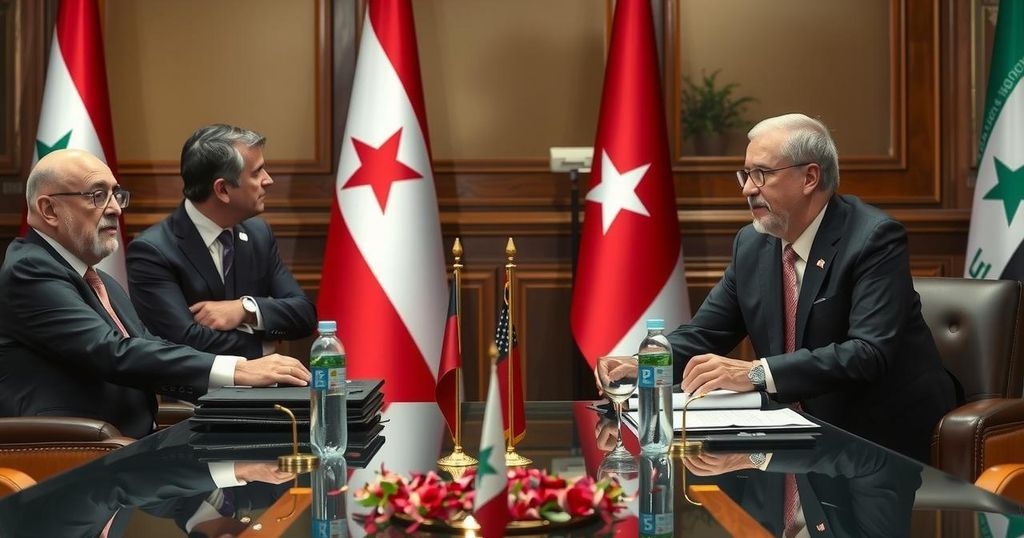Egyptian and Jordanian foreign ministers discussed the Syrian conflict, emphasizing the necessity for a Syrian-led political process. They condemned recent Israeli actions and reiterated Jordan’s support for Syria’s reconstruction and regional security. Safadi briefed Abdelatty on his visit to Syria, where he met with key figures regarding the political transition. Both ministers stressed the importance of collaboration among international partners to stabilize Syria.
On Monday, Egyptian Foreign Minister Badr Abdelatty and Jordanian Foreign Minister Ayman Safadi convened to discuss the ongoing situation in Syria, underscoring the need to uphold Syria’s sovereignty, unity, and territorial integrity. Both ministers advocated for a comprehensive political process that is both led and owned by the Syrian people, ensuring their participation and protection of their rights. Safadi briefed Abdelatty on developments from his earlier visit to Syria, particularly his meeting with Ahmad al-Shara, the head of Syria’s de facto governing body, which focused on Syria’s political transition and regional security matters.
During discussions, Safadi denounced the Israeli incursions into Syrian territory and reiterated Jordan’s commitment to supporting Syria’s reconstruction. He emphasized the strategic importance of this reconstruction for Jordan and the wider region, and noted the need for collaboration with both regional and international partners to engage with Syria’s emerging leadership. Safadi also highlighted the necessity of securing the Jordan-Syria border, addressing issues of terrorism, drug trafficking, and arms smuggling that threaten regional stability.
Additionally, Foreign Minister Abdelatty engaged in a telephone conversation with Saudi Foreign Minister Faisal bin Farhan Al Saud concerning the Syrian situation. During this discussion, he reiterated the significance of respecting Syria’s sovereignty, unity, and territorial integrity, while stressing the importance of a Syrian-led political process to restore stability throughout the nation.
Notably, on November 27, a militant alliance led by the Hayat Tahrir al-Sham group initiated a significant military operation in northern Syria, resulting in the capture of Damascus and the overthrow of former President Bashar al-Assad’s government within a mere twelve days.
The geopolitical landscape of Syria remains crucial not only for the region but also for international stability. Ongoing conflicts have necessitated discussions among neighboring countries regarding the restoration of peace and governmental structure. Egypt and Jordan’s meetings reflect a proactive approach towards instilling a sense of order in Syria, aiming to foster collaboration among diverse stakeholders within the nation. Furthermore, addressing security concerns linked to terrorism and cross-border trafficking is vital for maintaining stability in the region.
The meetings between Egyptian and Jordanian officials regarding Syria highlight the urgency of formulating a cohesive political strategy that is led by Syrians themselves. Their commitment to regional stability through mutual cooperation and support for Syria’s reconstruction reflects a significant diplomatic effort aimed at resolving ongoing conflicts. The discussions also emphasize the critical need for secure borders to prevent external threats that could undermine established peace efforts.
Original Source: news.az






